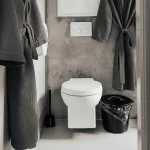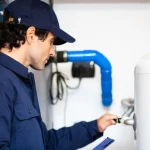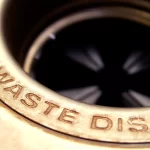How long has your hot water heater been working away? 15 years? 20? It just might be time to start thinking about getting a new one. If it’s been a while since you replaced it, you may be surprised by how many choices you have now! Why does it matter what kind of hot water heater you buy? Water heating can account for 20 percent of a home’s energy cost. Tanks that are 55 gallons or larger can reduce your utility bills by 25 to 50 percent, and thanks to new energy efficiency standards, water heaters that hold less than 55 gallons are about 4 percent more efficient than they used to be. As you research your options in hot water heaters, keep a few things in mind:
Capacity
Let’s talk capacity. Hot water heaters are sold based on how many liters (or gallons) they can hold. Your family might use 100 gallons of hot water in a day, but that doesn’t necessarily mean you need a 100-gallon tank. Each heater has either a first-hour rating or a gallons-per-minute rating. The FHR of a storage-tank water heater tells you how much water the heater can deliver over the first hour. Because a tankless water heater doesn’t hold water, the GPM tells you how many gallons per minute the heater can produce. When you’re looking at different heaters, consider your usage in comparison to the FHR or GPM of each model. Talk with a professional to determine how much capacity you’ll need and what would be the best option for you based on your water usage.
Types of Water Heaters
There are a lot of different types of water heaters! What type you get will be determined by how much hot water your household uses and what type of heating you have (i.e., gas, oil, electricity). You’ll also have to balance the upfront cost of the heater with the energy savings that certain heaters can give you over time. There are five main types of hot water heaters:
- Storage-tank water heater: most common, with an insulated tank.
- Tankless (on-demand) water heater: uses coils to heat water as you need it. A tankless model is more energy-efficient than a storage tank but produces much less water per minute. It’s a good option for homes heated by natural gas.
- Heat pump (hybrid) water heater: uses heat from the air to heat water. A heat-pump hybrid water heater is more energy-efficient than a storage tank but requires a large space for installation. Also, they don’t work well in cold spaces.
- Solar water heater: uses solar power to heat water, usually with a backup system that activates as needed. This is the most energy-efficient water heater available, but also the most expensive. Given the cost, a solar water heater is feasible only in areas that get lots of sun.
- Condensing water heater: uses exhaust gases to heat water. It has a tank like a traditional heater and could be a good option if you need a larger capacity and use gas heat.
Each type of hot water heater has pros and cons, so talk with professional plumbers in Toronto to discuss your home’s specific needs.
Features to Consider
In addition to the capacity and type, there are other features of hot water heaters that you need to consider.
- Warranty: Find a heater with the longest warranty available. Coverage typically runs from 3 years to 12 years.
- Anti-Scale Devices: Mineral scale can build up on the bottom of the water tank by the elements. A lot of brands advertise various anti-scale devices, but they’re not always necessary. Look for heaters with longer or thicker elements, as that will help reduce buildup.
- Brass vs. Plastic Drain Valves: Brass drain valves are more durable than plastic and are important to consider if you ever need to drain the heater.
- Glass-Lined Tanks: These are designed to reduce corrosion.
- Digital Displays: These are handy for helping you monitor levels and customize the operation. Some electric/heat-pump hybrid heaters allow you to set a vacation mode. On solar water heaters, the digital displays can often show you the tank and collector temperatures and other important information.
Before making any final decisions, it’s important to talk to a professional so you can be sure you’re making the right decision for you and your home. There can be some tricky wording in warranties, so do your research, talk to your neighbors, talk to a professional and make the best, the most informed decision you can.






